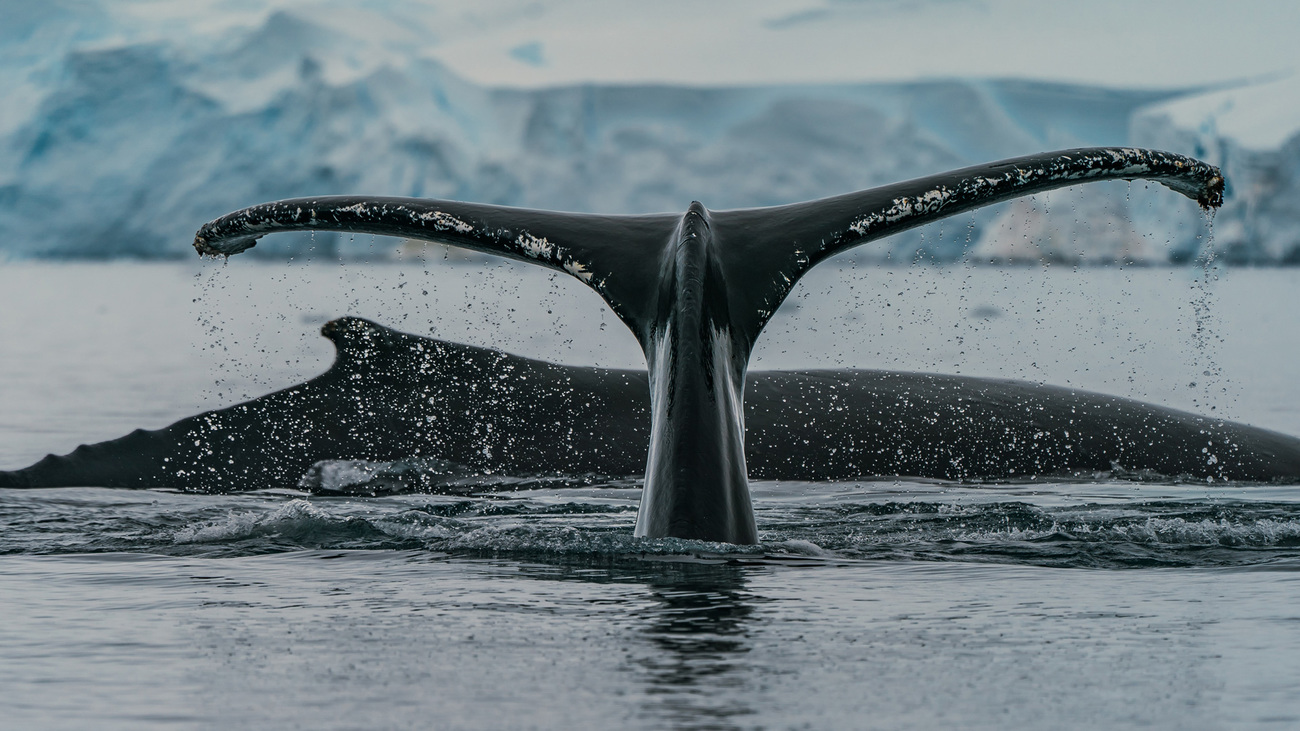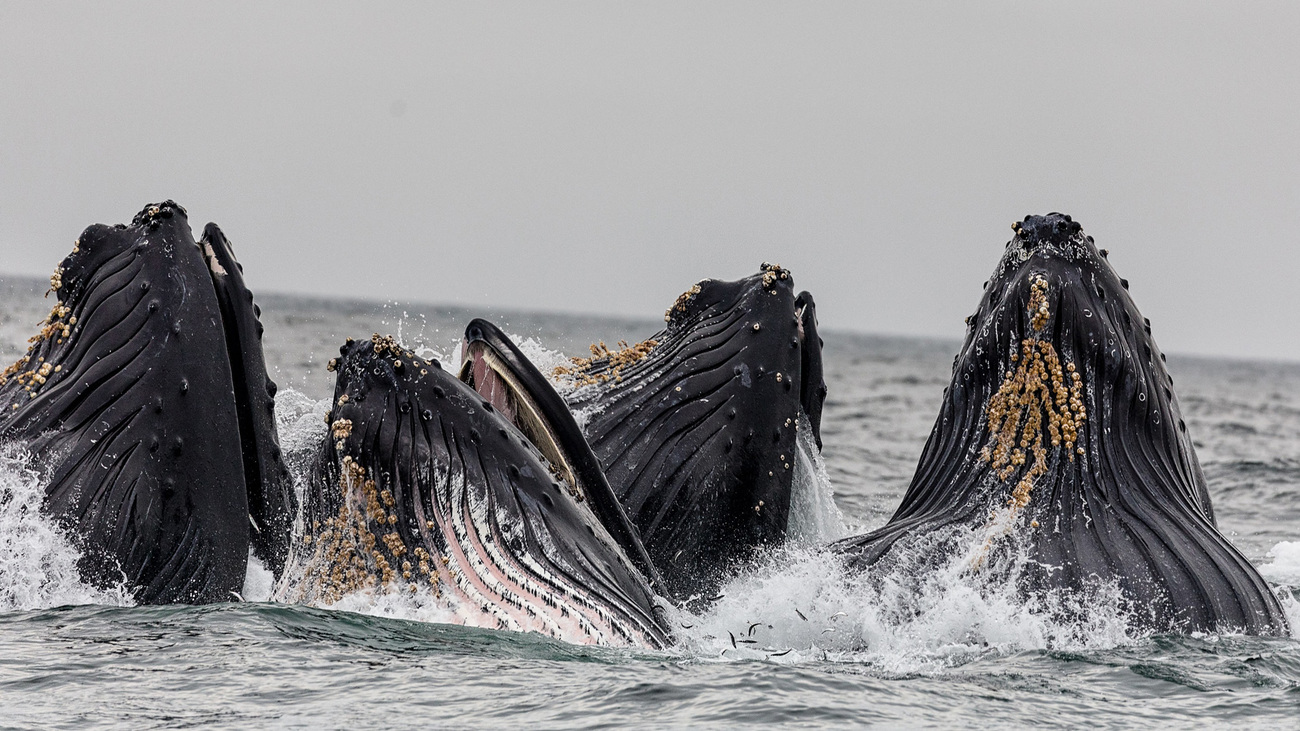Saving the North Atlantic right whale - North America
Don't fail our whaleThe International Whaling Commission (IWC) celebrates its 75th anniversary
The International Whaling Commission (IWC) celebrates its 75th anniversary

As the International Whaling Commission (IWC) reaches its 75th year, IFAW and more than 50 of the world’s leading marine animal organisations are calling for a new vision for the IWC that puts it at the centre of global ocean conservation efforts.
Today (2 December 2021) marks the 75th birthday of the International Whaling Commission (IWC). That is a good innings by most human and great whale standards (although possibly only half the life of a bowhead whale according to this research).
The IWC was established under the terms of the 1946 International Convention for the Regulation of Whaling (ICRW), to conserve whale populations and regulate the whaling industry. The ICRW was probably the first of what could be characterised as modern international environmental agreements, in that it recognised international cooperation was required to protect so-called global commons – shared natural resources—that belonged to no one specific nation—from overexploitation.
Two previous attempts to regulate the overexploitation of whales in the post-World War I period, the 1931 Geneva Convention and the 1937 International Agreement for the Regulation of Whaling, had both already failed, but each provided the framework that the ICRW would follow.
Evolving from a whalers’ club to whale protection
The ICRW was signed by 15 nations in Washington DC, United States, on 2 December 1946, who then became the IWC’s founding members. Today the IWC’s membership has grown to 88 nations, evolving significantly from what was essentially a whalers’ club at its outset.
This ability to evolve is perhaps the IWC’s most striking feature, even if its initial pace of evolution was not at the speed the whales needed. Much like its predecessor agreements, the IWC presided over decades of wanton destruction of one whale population after another. After failing for so many years to achieve its mandate, the member governments of the IWC then undertook what at the time was a visionary decision – in 1982, it agreed to a moratorium on all commercial whaling.
This decision, which came into force in 1986, likely prevented the extinction of several whale populations and species globally. While even today some nations continue to conduct commercial whaling and defy the moratorium, it still resonates as one of the most significant conservation decisions of its time, or indeed ever. Finally, the nations of the world were recognising there was a limit to the furious pace of human consumption of natural resources.
As a result, almost 40 years later, some whale populations have recovered, but many are nowhere near their pre-exploitation levels; the bans on commercial whaling and international trade in whale products remain critical to ensure that whales have the best chance of recovery in what is now a degraded marine environment.

Reaching the grand old age of 75 should be a reflection point for the IWC. Born in a time where the world barely recognised there were limits to the human plunder of nature, the world the IWC inhabits today is starkly different. While we still have much to learn about whales and the ocean, recent science has shone a light on just how critical the role played by whales is in ocean health. Whales are at the centre of a complex web of life, where they stimulate ocean productivity and the growth of phytoplankton—the ocean’s superhero in absorbing CO2 and combating climate change.
Decisions by members at the IWC are slowly beginning to recognise this function, and the implications for the IWC are significant. A body born out of a desire to put a number on how many whales could be killed, must now grapple with the responsibility of overseeing the full recovery of these populations, so they can once again fulfil the vital function they play in ocean ecosystems.
It is this premise that must lie at the heart of the IWC’s future. If the IWC wants to remain relevant for another 75 years, it needs to embed itself at the heart of wider global ocean conservation efforts. If it wants to resolve the most pressing threats to whales today, from bycatch in fishing gear to ocean noise, plastic pollution and ship strikes, it must work hand in hand with other international bodies and agreements. And if it wants to remain relevant to all nations, it must focus on the most predominant ‘use’ of whale resources in the world today—the whale watching industry that supports the lives and livelihoods of millions worldwide.
A new vision for the next 50 years
That is why IFAW and more than 50 other leading marine animal organisations have joined together on the IWC’s 75th birthday to call for its member governments to use the occasion to launch a new vision for the organisation. We want to see the IWC adopt a bold vision for the next 50 years that puts it at the centre of global, regional and local efforts to ensure the full recovery and health of all whale, dolphin and porpoise populations, safeguard their welfare, and maximise their ecological contributions to a healthy ocean.
Now that would be a 75th birthday present to savour.
Related content
Every problem has a solution, every solution needs support.
The problems we face are urgent, complicated, and resistant to change. Real solutions demand creativity, hard work and involvement from people like you.